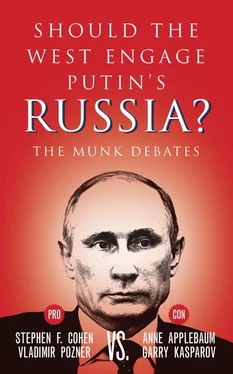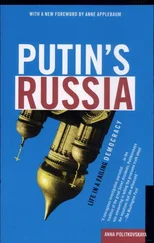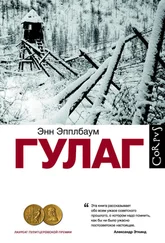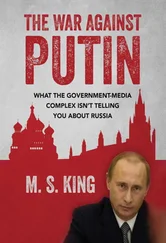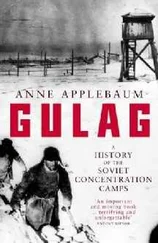And finally, we need to ensure that Russia’s influence on Ukraine and its influence on eastern Europe is understood not only as political influence but also as a kind of disinformation. We need to understand that Russia uses false information and phony stories in order to create false images of what is happening. We need to also disengage from Russian media. We need to make sure that we understand there is a difference between true and false, because it is becoming harder and harder to distinguish.
One of the really strange and surprising things about the Ukraine debate over the last year and a half is how effective Russian propaganda has been and how Russian lies appear even in the West. Sometimes they create fake web sites, which sell fake stories that manage to get into the mainstream media. Sometimes it’s more direct, and sometimes it’s just Russia Today or many of the other Russian disinformation channels.
But it is really effective, and we need to understand how weak our media is, particularly in the era of budget cuts. We need to start thinking about how to keep that kind of negative influence out of our media space so at least we know what’s going on in the world and we are not affected by this kind of systematic lying that the Russian regime produces.
RUDYARD GRIFFITHS: Your opponents are probably going to say tonight that by taking a stance of isolation versus engagement or by pushing back against Russia as opposed to reaching out, you’re empowering very hard-liners around Putin and maybe even Putin himself. Putin and his cronies want Russia isolated to the degree that it enhances their own control over that society. How do you respond to that line of thinking?
ANNE APPLEBAUM: We have created Putin. Our policy of engagement for the last ten years — as well-intentioned as it was — created Putin. Allowing Russian companies access to our financial markets and our tax havens and our money laundering schemes have created the Russian oligarchy. The Russian oligarchy wouldn’t exist if it wasn’t for the Western banking system that supports it. We helped create Putin. We gave Russia its post-Soviet status. We gave Russia a seat at the UN. We invited Russia to join the G8. We allowed Putin to grow even when it was already clear which way his regime was going from the mid-2000s.
We let him hold an enormous G8 summit in St. Petersburg, where he was lionized and surrounded by all the leaders of the democratic world. He was able to use the summit to say to his people, Look, you say I’m not a democrat, but all these democratic countries here think I am. And in that way, we supported him. We allowed him to do what he’s done.
The other problem is that the West is so nervous about Russia. I once went and looked up the obituaries that were written about Russian leaders after they had died, or, in the case of Khrushchev, when he resigned. At the time of Stalin’s death in 1953, the Times of London wrote a long article, and the thrust of it was, now that Stalin is gone, the hard-liners in the wings will take over. Who is more of a hard-liner than Stalin? Stalin was a mass murderer. But we wrote the same thing when Brezhnev died and when Khrushchev resigned.
We have always been afraid that it will always get worse. Whatever we are doing, we really have to be careful of enhancing the hard-liners. But who knows, maybe Putin is the worst and maybe we’ll get somebody better next.
RUDYARD GRIFFITHS: Some people tonight will probably be thinking about Putin’s nuclear arsenal of 3,000-plus warheads and how that fundamentally changes the conversation, in the sense that accommodation and engagement really is the only course of action in the face of the potentially existential threat that the arsenal represents. Do you agree?
ANNE APPLEBAUM: There is a different response. I agree with you that this is all about nuclear weapons. I mean, we could help Ukraine if it had been invaded by Belarus. It wouldn’t be that difficult. They would only need a couple of radars or something and some anti-tank weapons. The reason we don’t help is because we are afraid of Putin’s nuclear weapons. The reason diplomacy unfolds the way that it does in Europe is because we are afraid of Putin’s nuclear weapons.
But the lessons of history show us that the way to cope with a country that has nuclear weapons is to deter it, and deterrence is not the same thing as engagement. Deterrence means building up your own credibility, building up your own forces, and making sure that the other person with nuclear weapons understands that if he uses them so will you. It’s an unpleasant truth and it is one that I wish didn’t exist. I am one of those people who would happily wish away nuclear weapons. But if somebody like Putin has them, the only way we can cope with that is by saying, If you use them, so will we. And that has to be a believable threat.
This is actually a different issue from engagement versus isolation: it is a question of making sure Putin understands that the use of nuclear weapons is totally unacceptable and that if he does use them, he will pay a huge price. That’s it. It’s not a nice solution. It’s not a sort of solution that most Canadians or Americans feel happy with, or most human beings, for that matter, but that’s the reality. There isn’t another solution. Engaging Putin does not stop him from using his nuclear arsenal — only deterrence does.
RUDYARD GRIFFITHS: In that context, are you concerned about NATO’s credibility? Do you think that Putin will test Article 5 of NATO — that says that an attack on one of them is an attack on all of them — somewhere in the Baltic States? If NATO didn’t enforce Article 5, how would this affect Putin’s larger feelings about deterrence on the nuclear front?
ANNE APPLEBAUM: Putin is already testing NATO. He kidnapped an Estonian officer. He captured a Lithuanian ship. He just conducted an enormous military exercise in the Arctic, which tested Canada. He sends these nuclear bombers to kind of buzz around British airspace. That’s what he is doing now. It’s a test of NATO and he is gauging our responses. Are we taking him seriously? Do Swedish planes scramble when he flies over Sweden? He is testing us all the time. He is looking to find out how weak or strong NATO threats are, and how far he can push us. It could be extremely dangerous for us not to take him seriously.
RUDYARD GRIFFITHS: Should NATO membership be extended to Ukraine at the appropriate time?
ANNE APPLEBAUM: First of all, that’s not a question. It was turned down in 2009 and is not on the table now. It’s not going to be on the table anytime soon. It’s an irrelevance that keeps coming into the conversation. My more fundamental concern is whether we are sure we can defend existing NATO members. Can we defend the Baltic States? Are we ready to defend Poland or Canada in cases of incursions from the Arctic? Let’s think about it. We need to make sure that what we already have is defendable. Remember that since NATO enlargement there has been a Western assumption that there would never really be a Russian threat again. And actually, the whole time NATO was enlarging as an institution, the U.S. and others were building down their forces. In 2013, there were no U.S. tanks in Europe — the Americans took them all out. But American tanks are now back in Europe as of a few weeks ago because people are afraid again.
But we have been building down. We have been pulling out. We never even put NATO bases in eastern Europe. We never moved them anywhere east at the time of expansion, and those are all policies we now need to rethink.
RUDYARD GRIFFITHS: Anne Applebaum, always insightful. We look forward to hearing you at the debate tonight.
ANNE APPLEBAUM: Thank you.
GARRY KASPAROV
IN CONVERSATION WITH
Читать дальше
